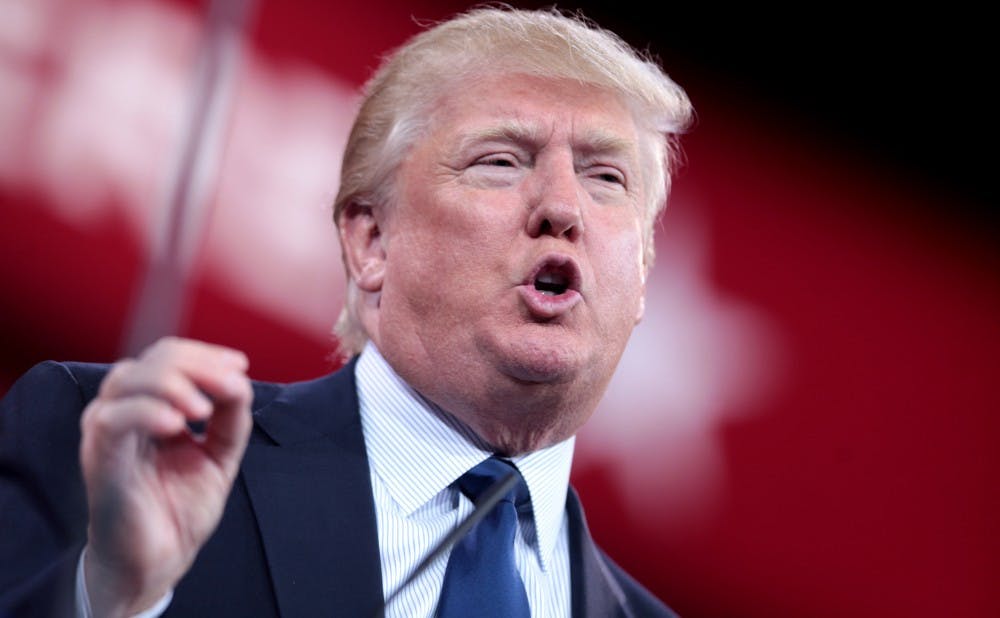U.S. President Donald Trump is not the first chief executive to pressure the Federal Reserve to follow a certain monetary policy.
Lyndon B. Johnson physically shoved his Federal Reserve chairman, William McChesney Martin, at his ranch when Martin decided to raise short-term interest rates. Richard Nixon pressured his chair to lower interest rates ahead of the 1972 presidential election. Paul Volcker, former chairman of the Federal Reserve, alleged that Ronald Reagan’s chief of staff ordered him to lower interest rates as well.
The effect of such pressure, applied behind closed doors, is hard to determine. But when a president attempts to exert his influence publicly on Twitter, which some argue Trump is doing, economists can extract real-time data of market reactions to timestamped tweets.
Francesco Bianchi, an associate professor of economics at Duke, took advantage of Trump’s unprecedented use of Twitter to investigate the effect his tweets on market expectations have on Federal action. Bianchi and two other researchers found that Trump’s tweeting influences market participants’ expectations of future interest rates, threatening the independence of the Federal Reserve from political forces.
“[Trump’s use of Twitter] gives a unique opportunity to actually check when exactly information is revealed and how markets react,” Bianchi said.
Bianchi downloaded all of Trump’s tweets since the announcement of his presidential campaign in June 2015 and extracted all tweets criticizing the Federal Reserve, searching for keywords such as “Jerome Powell”—current chair of the Federal Reserve—and “Federal Reserve.” Bianchi then extracted the prices of federal funds futures contracts of different maturities from the time frame around tweets’ timestamps.
The data on federal funds futures contracts reveals market expectations of interest rates, as the payout on a certain futures contract is equal to the average of the daily federal funds rates of a given month. By analyzing data of different maturities, Bianchi was able to determine changes in market expectations due potentially to tweets.
“In a nutshell, the contract is telling you ‘this is the expected federal funds rate from the point of view of market participants,’” Bianchi said.
Using this data, Bianchi found that Trump’s tweets had a statistically significant negative effect on the expected federal funds rate.
“The fact that market participants might not perceive the Federal Reserve as autonomous from the Executive Branch can have implications for the actual independence of the central bank,” wrote Thilo Kind, a doctoral candidate student at the London Business School and coauthor on Bianchi’s paper, in an email to The Chronicle. “Studies have shown that the Federal Reserve pays close attention to market expectations about its actions.”
Howard Kung, assistant professor of finance at the London Business School and Graduate School ‘12, was also an author on the paper.
The Federal Reserve has already lowered interest rates this year amid economic slowdown, but Trump wants interest rates near or below zero. Such decreases could promote economic growth, increasing Trump’s popularity and boosting his chances at reelection.
“Presidents have an interest in the economy’s doing well because that’s good for their ratings,” said Bianchi.
Bianchi’s findings have significant economic implications. The Federal Reserve has operated as an independent regulatory agency since its founding in 1913. The Reserve has been insulated from political pressure, but now Bianchi has shown that President Trump’s influence threatens central bank independence, which is necessary to shield the economy from political pressure for short-term term success in lieu of long-term growth.
Get The Chronicle straight to your inbox
Signup for our weekly newsletter. Cancel at any time.

